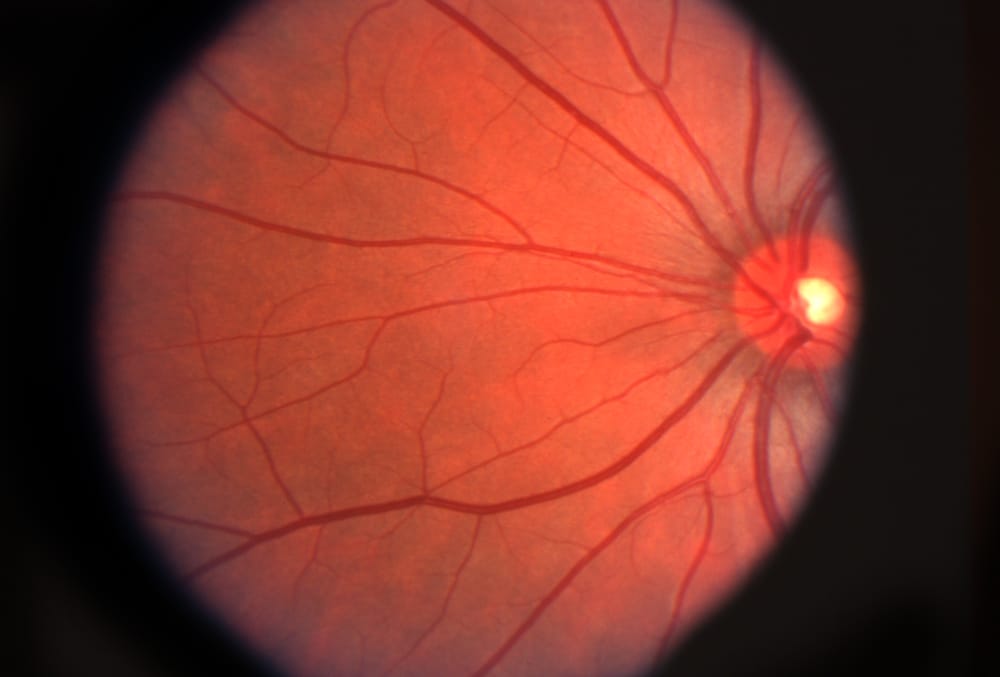When you hear “retinal scan,” you might picture biometric security software – almost like something out of a James Bond film. However, a new study shows that retinal scans could serve as a means for understanding Alzheimer’s disease. The research revolves around retinal scans, detecting changes in blood vessels of patients with a crucial Alzheimer’s risk gene that could, finally, shed some light on early Alzheimer’s detection.
Cranial Capillaries and Alzheimer’s Disease
The National Cancer Institute explains that capillaries are the smallest and most numerous type of blood vessels in the human body. Their primary function is the exchange of materials between blood and tissue cells. With this in mind, one neurology professor at the University of California San Francisco (UCSF) had a theory. Science Daily reports that Dr. Fanny Elahi, a member of UCSF’s Memory and Aging Center (MAC), suspected that capillaries may play a role in Alzheimer’s disease. Elahi predicted that damage to these tiny blood vessels could cause a variety of problems – including the cranial protein buildup and cognitive decline seen in Alzheimer’s patients. Elahi then theorized that inspecting capillaries for irregularities could identify early signs of Alzheimer’s disease. This theory inspired a new study released by Elahi and her team. The study was published May 11, 2021, in the journal Alzheimer’s and Dementia: Diagnosis, Assessment & Disease Monitoring.
Detecting Capillary Changes via Retinal Scan
Elahi’s theory was compelling. Unfortunately, as Science Daily explains, doctors don’t currently have the technology to “visualize individual capillaries in living people’s brains.” With that in mind, Elahi and her colleagues turned to the eye. Elahi and her team reportedly used quick, inpatient eye scans to detect capillary changes in the retina. Why? Because the retina’s light-penetrating tissue shares biology with the brain. This led researchers to theorize that changes to retinal capillaries may help predict changes to intracranial capillaries.
Applying Retinal Capillary Measurements
After conducting a series of retinal scans on aging individuals, the researchers’ findings were compelling. First, researchers found “reduced capillary density” in individuals at risk of Alzheimer’s. Researchers made this determination by assessing whether or not participants carried the Alzheimer’s-associated APOE4 gene. Additionally, they found that capillary density continued to reduce with participants’ age. Science Daily reports that the team then compared the abnormalities seen in retina scans to measurements of brain blood flow, which they observed via MRI. Overall, participants with higher retinal capillary density did, in fact, have better brain blood flow.
Implications of the Study
Ultimately, the UCSF study may have far-reaching implications for the neurological field. “This is the first time that we have demonstrated in living, asymptomatic humans that the smallest blood vessels are affected in APOE4 gene carriers,” said Elahi, cited in Science Daily. “This is just the beginning, but the implications for early detection and possible intervention can be significant in combatting Alzheimer’s disease and other neurodegenerative disorders. It’s much harder to regenerate neurons than to stop their degeneration from happening in the first place. Similar to cancer, early detection can save lives.”
_____
As the quest for a cure for Alzheimer’s disease continues, studies like these are crucial in terms of early detection – and possibly even prevention. Finally, the study could serve as valuable insight into other debilitating neurological conditions.
Scantox is a part of Scantox, a GLP/GCP-compliant contract research organization (CRO) delivering the highest grade of Discovery, Regulatory Toxicology and CMC/Analytical services since 1977. Scantox focuses on preclinical studies related to central nervous system (CNS) diseases, rare diseases, and mental disorders. With highly predictive disease models available on site and unparalleled preclinical experience, Scantox can handle most CNS drug development needs for biopharmaceutical companies of all sizes. For more information about Scantox, visit www.scantox.com.









